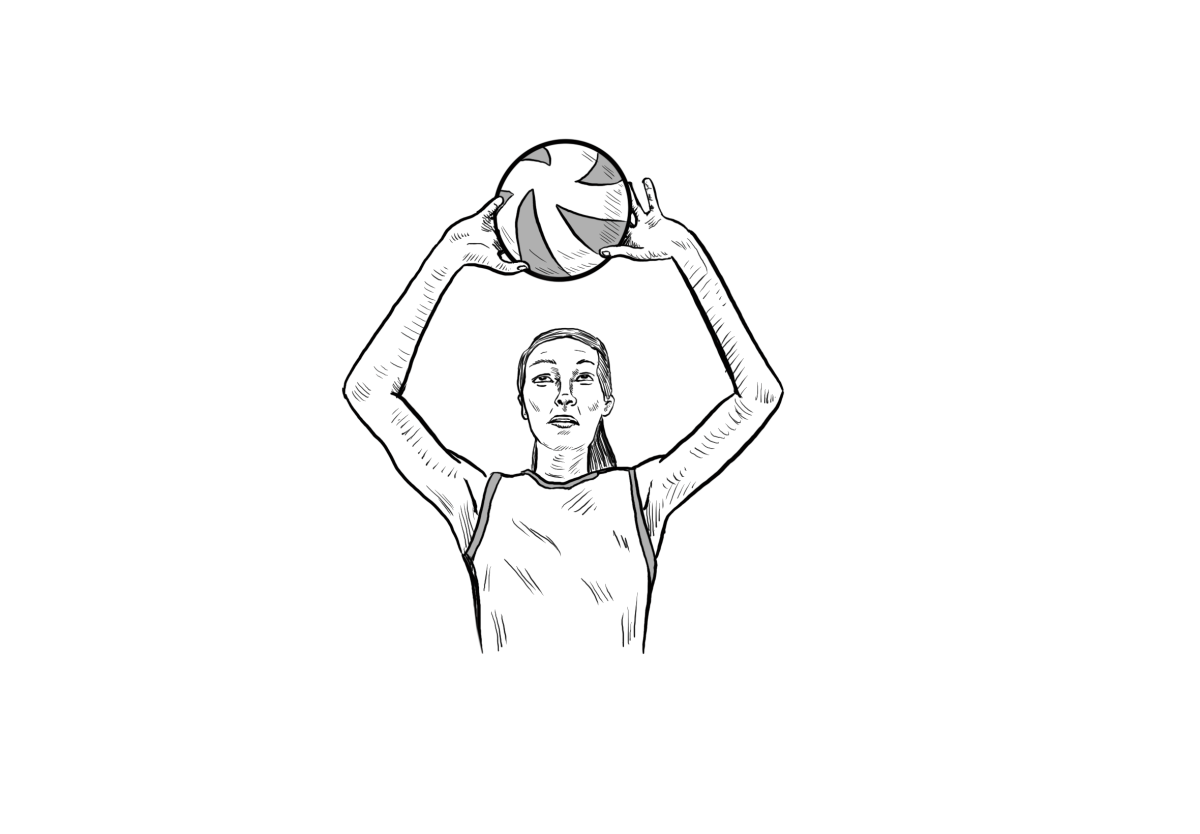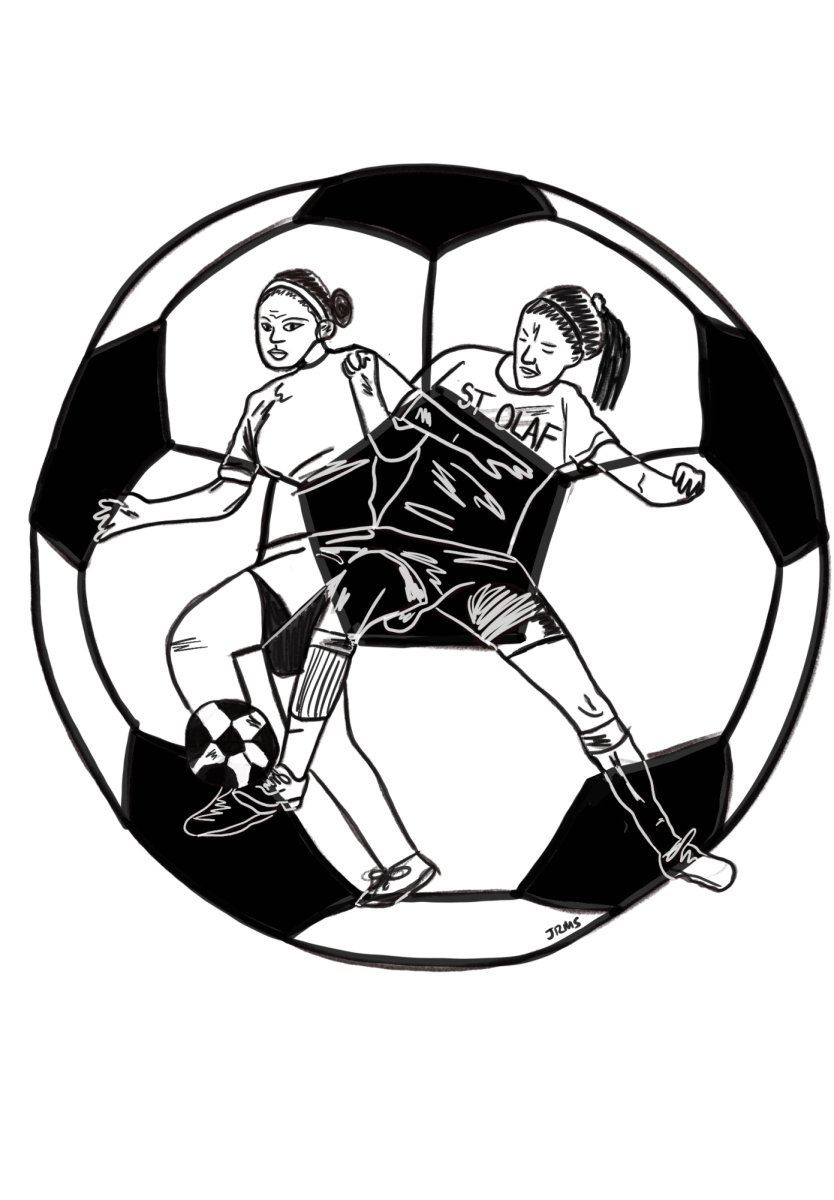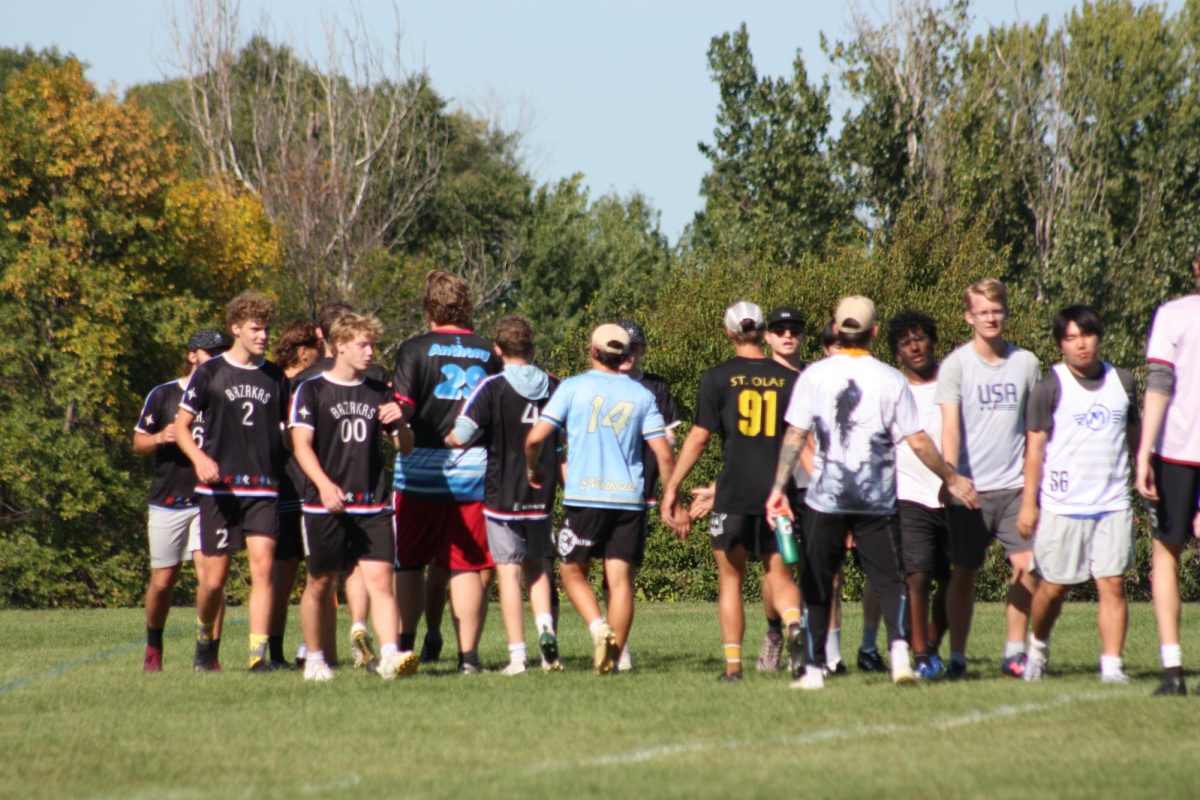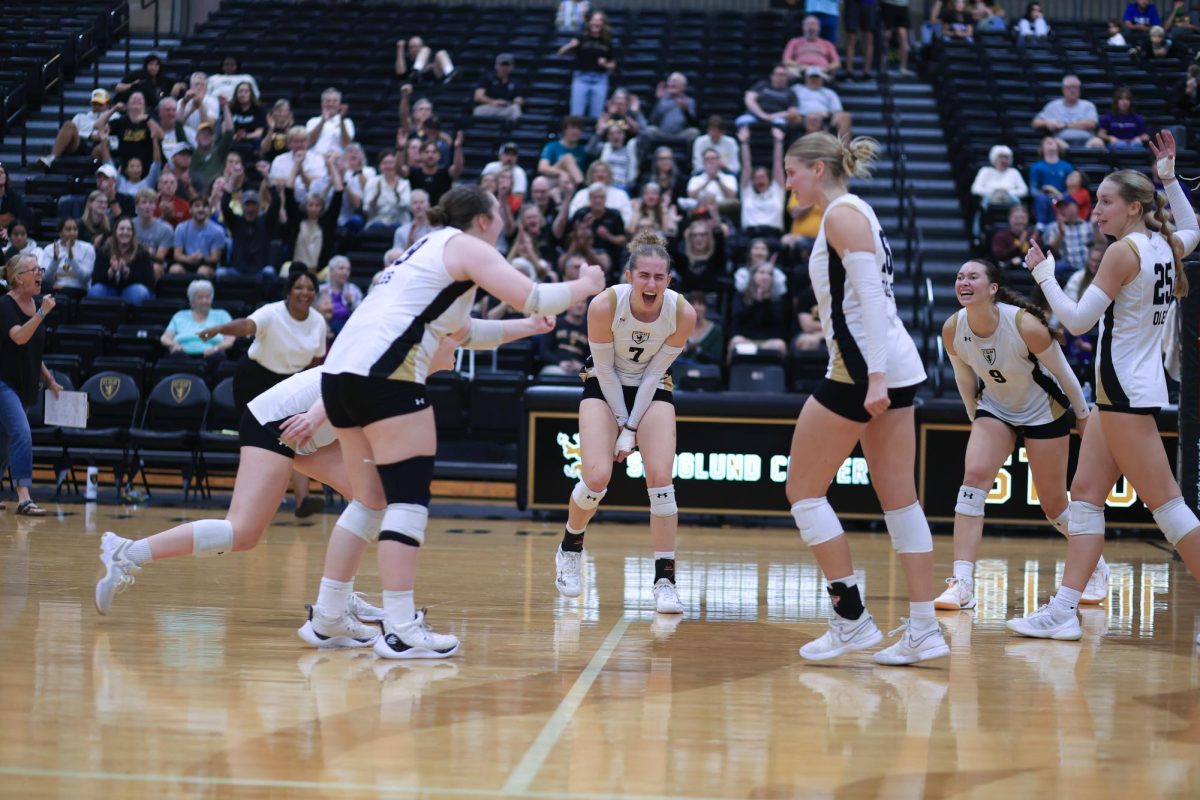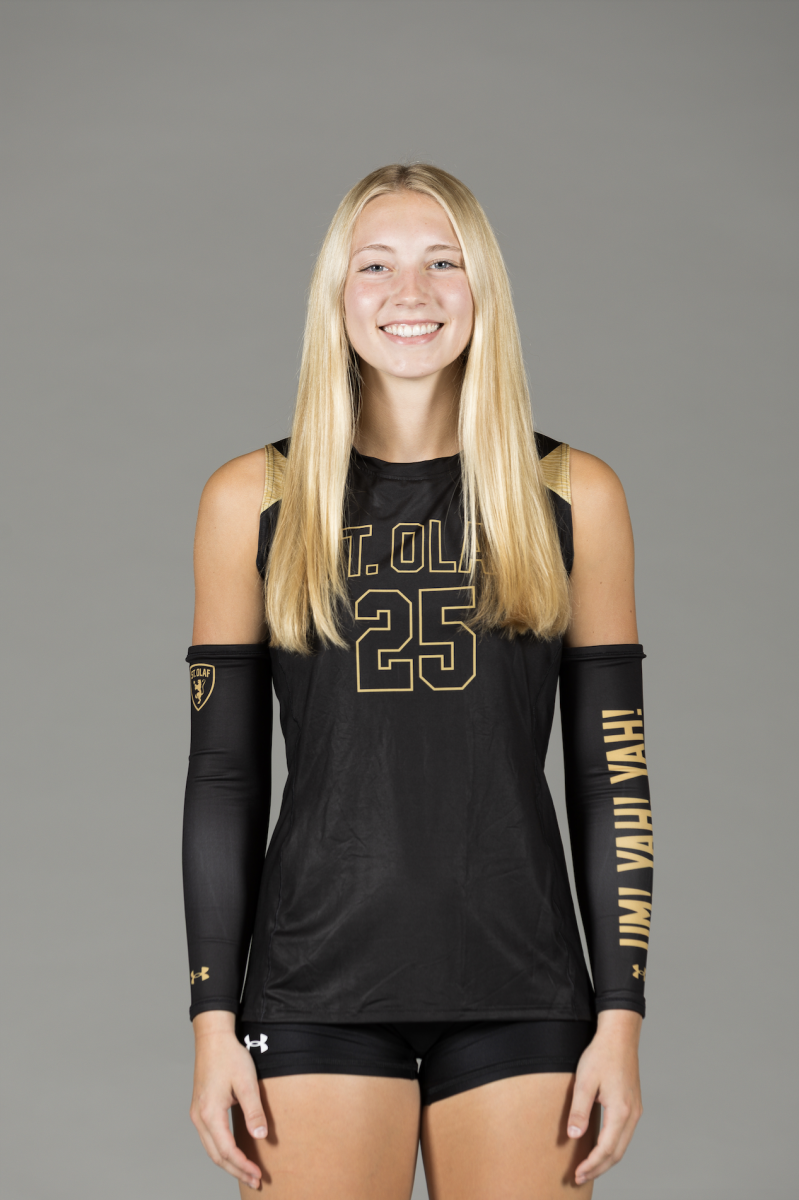Illustration by Sean Rogers
A Feb. 20 NCAA ruling enacted a set of changes to women’s college volleyball that has the potential to make a significant impact on the game.
Firstly, players are now permitted to touch the ball twice when passing to a teammate, a play — formerly a fault — known as “double contact.” The NCAA Women’s Volleyball Rules Committee made this decision in hopes of promoting a smoother and more entertaining game with fewer stoppages of play. “It’ll just add a little more athleticism [and] a little less judgment for the officials,” Committee Chair Lindsey Oates told Volleyball Mag. This upcoming season marks her 19th as the head coach of the University of Northern Colorado women’s volleyball team.
Players, coaches, and referees alike have historically disputed double contact incidents, and in some cases, these calls have been decisive to match-determining points. “Some refs are really lenient with it and some refs are really strict with it,” Colorado State University women’s volleyball head coach Emily Kohan told The Rocky Mountain Collegian. To address these inconsistencies, the NCAA committee felt that a steady no-call was the most effective move toward creating as fair of a game as possible. “We talked for hours,” said Oates “It’s a fairly significant change and we wanted to make sure we thought of everything.”
Perhaps the position most impacted by the double contact rule is the setter, responsible for coordinating the offensive strategy through quick and precise passes to teammates all over the court. “A lot of setters are like, ‘I trained so long and now you can just double anybody,’” Colorado State University setter Emery Herman told The Rocky Mountain Collegian. Herman, however, remains unsure but optimistic about how the rule will play out. “I personally don’t get the negative feedback because it’s not going to change how you train setters, the mindset behind the strategy or anything,” she added.
An additional change brought forth by the NCAA committee allows each team to designate two liberos — instead of just one — per set. Liberos, who hold a key role in defensive coordination and wear different colored jerseys from their teammates, are unique in that they cannot play up front by the net. The motive behind this rule adjustment, according to the committee’s statement, is to “allow more players the opportunity to compete and to increase action and improve play.”
Additional regulations announced in February include players now being allowed to wear snug-fitting hoop earrings and nose rings as well as over-the-net interference being named a challengeable play using video review.
